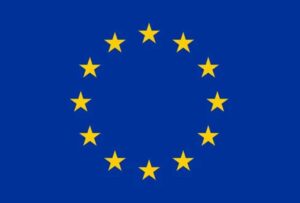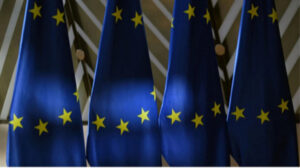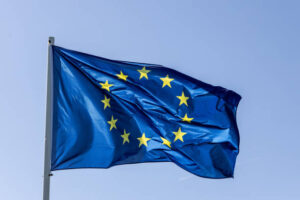
One in six residents of the European Union lives in cramped housing, while approximately one in three lives in a household that is considered too spacious for the number of residents, according to Eurostat’s overview publication ‘Housing in Europe – 2025 edition’.
According to the statistics agency’s estimates, in 2024, about 17% of the EU population lived in overcrowded housing. The highest rates of ‘overcrowding’ were recorded in Romania (41%), Latvia (39%) and Bulgaria (34%).
The lowest rates of overcrowded housing were recorded in Cyprus (2%), Malta (4%) and the Netherlands (5%).
At the same time, about 33% of the EU population lives in ‘underoccupied’ housing – houses and flats that are considered too large for the number of people living in them.
The highest proportion of such households is in Cyprus (70%), Ireland (67%) and Malta (64%), and the lowest in Romania (7%), Latvia (10%) and Greece (13%).

Former head of the European Union delegation to Ukraine José Manuel Pinto Teixeira said that Ukraine is currently more ready to join the EU than a number of Western Balkan countries. He said this in an interview with Deutsche Welle. According to the diplomat, fears about the new stage of EU enlargement are exaggerated.
Teixeira noted that Ukraine has significant potential for the EU: it is a large country with natural resources, developed agriculture, and an educated and hard-working population that has demonstrated resilience and courage in the face of war. He stressed that Ukraine’s accession would be an “important acquisition” for the European Union in terms of territory, resources, and human capital.
The former ambassador recalled that Ukraine has made significant progress in the fight against “physical corruption” since the Revolution of Dignity, but such reforms always take a long time. He stressed that Ukraine remains a unique case in modern history: a country in the midst of a full-scale war is simultaneously carrying out reforms and moving towards European integration.
Teixeira pointed out that Ukraine continues to reform its public administration system amid constant Russian missile and drone attacks on civilian infrastructure. At the same time, Moscow, despite its status as a permanent member of the UN Security Council, is effectively avoiding international responsibility for its actions.
Assessing the prospects for EU enlargement, Teixeira said that the long preparation period for the Western Balkan countries does not in itself mean that they are more ready for accession than Ukraine. In his view, Kyiv is already ahead of a number of Balkan states in terms of its fulfillment of most of the key criteria, but must continue with reforms even after receiving candidate status.
He recalled that Ukraine is moving forward in the same “enlargement package” as Moldova and the Western Balkan states of Albania, Montenegro, Serbia, North Macedonia, Kosovo, and Bosnia and Herzegovina, which have been negotiating for many years but face chronic problems of the rule of law, corruption, and territorial disputes.
José Manuel Pinto Teixeira headed the EU Delegation to Ukraine from 2008 to 2012 and is now vice president of the European Center for Electoral Support (ECES) in Brussels.

The European Union is facing a serious crisis in the supply of critical materials after the decision of the Chinese government to impose new export restrictions on rare-earth magnets and raw materials for their production, reports Politico.
As noted, Beijing’s decision in early October has escalated the trade standoff with the United States and created risks for European industry, which is almost entirely dependent on imports of such elements from China.
“A crisis in the supply of critical raw materials is no longer a remote risk. It is already on our doorstep,” European Commission President Ursula von der Leyen told MEPs on the eve of the EU summit.
She emphasized the need for “decisive and urgent action” to ensure faster and more reliable supplies of critical materials “both within Europe itself and from trusted partners.”
European Trade Commissioner Maroš Šefčovič said the EU was not interested in escalating tensions, but emphasized the need to resolve the situation quickly. “However, this situation casts a shadow on our relations. Therefore, a quick solution is essential,” he said.
Šefčovič said China and the EU will “strengthen contacts at all levels” to discuss the restrictions. Chinese Commerce Minister Wang Wentao is due to arrive in Brussels for consultations in the coming days.
“The European Union is also holding talks with the G7 countries on an agreed response to the crisis ahead of a ministerial meeting to be held October 30-31 in Canada,” the report said.
Earlier, the information and analytical center Experts Club analyzed the global market of rare earth metals of the world and Ukraine, the video is available here -.
https://youtu.be/UHeBfpywpQc?si=0L-2nSUrLlIbqVZ5?si=Fk6Oi_13NKpEW81K
CHINA, EUROPEAN UNION, EXPERTS CLUB, EXPORT, rare earth elements

As part of its 19th package of sanctions, the European Union will impose a ban on transactions with five Russian credit institutions from November 12: Alfa Bank, MTS Bank, Absolut Bank, Zemsky Bank, and NKO Istina, according to an EU statement.
In addition, Belarusian Alfa Bank, Sberbank, VTB, Belgazprombank, BelVEB, as well as VTB’s subsidiary in Kazakhstan and VTB’s branch in Shanghai have been added to the EU sanctions list.
BAN, BANK, BELARUS, EUROPEAN UNION, RUSSIAN FEDERATION, SANCTION, TRANSACTION

The European Union has published a list of individuals and legal entities included in the 18th package of sanctions against the Russian Federation, which includes 22 Russian and two Chinese banks, four companies linked to the Russian Direct Investment Fund, 26 new entities linked to the Russian military-industrial complex, and eight companies from the Belarusian military-industrial complex.
The sanctions list was published on Saturday, July 19, in the Official Journal.
Thus, 22 Russian banks were hit by sanctions:
T-Bank, Bank Saint Petersburg, Centrocredit Bank, Yandex Bank, Surgutneftegazbank, Metkombank, Severgazbank, Genbank, Bystrobank, Energotransbank, Tatsozbank, Zenit Bank, Transstroybank, Finam Bank, Ozon Bank, Expobank, Lokko Bank, Dom.RF Bank, MSP Bank, Lanta Bank, Bank 131, and RostFinans Bank.
Two Chinese banks were sanctioned by the EU for the first time for providing cryptocurrency services: Heihe Rural Commercial Bank and Heilongjiang Suifenhe Rural Commercial Bank.
Eight companies from Belarus’ military-industrial complex were also added to the sanctions list: Belvneshpromservis, OKB TSP, KB Bespilotnye Vertochnye, Legmash plant, BelOMO’s LEMT scientific and technical center, Laser Devices and Technologies LLC, Vistan, and Rukhservomotor.
Fourteen individuals and 41 organizations responsible for actions that undermine or threaten the territorial integrity, sovereignty, and independence of Ukraine have been added to the sanctions list. This brings the total number of individuals and entities included in the sanctions list to over 2,500.
According to EU High Representative for Foreign Affairs and Security Policy Kaja Kallas, this package is “one of the toughest to date.” “Each sanction weakens Russia’s ability to wage war. The message is clear: Europe will not back down in its support for Ukraine. The EU will continue to increase pressure until Russia ends the war,” she stressed.
As reported, the EU Committee of Permanent Representatives (Coreper) approved the 18th package of EU sanctions against Russia on the morning of July 18.

Support is lowest in France, Spain and Poland, while 21% back authoritarian rule under certain circumstances
Only half of young people in France and Spain believe that democracy is the best form of government, with support even lower among their Polish counterparts, a study has found.
A majority from Europe’s generation Z – 57% – prefer democracy to any other form of government. Rates of support varied significantly, however, reaching just 48% in Poland and only about 51-52% in Spain and France, with Germany highest at 71%.
More than one in five – 21% – would favour authoritarian rule under certain, unspecified circumstances. This was highest in Italy at 24% and lowest in Germany with 15%. In France, Spain and Poland the figure was 23%.
Nearly one in 10 across the nations said they did not care whether their government was democratic or not, while another 14% did not know or did not answer.
Thorsten Faas, a political scientist at Berlin’s Free University, who worked on the study, said: “Among people who see themselves as politically to the right of centre and feel economically disadvantaged, their support of democracy sinks to just one in three.
“Democracy is under pressure, from within and without.”
The study was carried out in April and May. More than 6,700 people between the ages of 16 and 26 in Britain, Germany, France, Spain, Italy, Greece and Poland responded to the ninth annual survey by the YouGov institute for the Tui Foundation, which funds projects dedicated to youth in Europe.
Forty-eight per cent worry that the democratic system in their own country is endangered, including 61% in Germany, where the economy – Europe’s biggest – is ailing and the far right has made significant inroads, fuelled in part by increased backing from young voters.
The return of Donald Trump to the White House, the rise of China, and Russia’s full-scale invasion of Ukraine have shifted power away from Europe in the respondents’ perception, with just 42% counting the EU among the top three global players.
Despite – or perhaps because of – Brexit, the figure was highest among Britons at 50%. Of those surveyed in the UK, 73% wanted a return to the EU, while nearly half of young Europeans (47%) sought stronger ties between the EU and Britain.
The US was seen by 83% as part of the power trio, followed by China with 75% and Russia on 57%.
Rising polarisation is also driving young Europeans to the ideological fringes along with their elders, but a notable gender divide has emerged in the process.
Nearly one in five – 19% – described themselves as politically right of centre, up from 14% in 2021, while 33% called themselves centrists, 32% as leftist and 16% without any designation.
Women in Germany, France and Italy identified as progressive in higher numbers than four years ago, while young men in Poland and Greece have grown more conservative in the same period.
Support for tougher restrictions on migration has grown across the board since 2021, to 38% from 26%.
Most young Europeans expressed hope in the EU’s potential, and two in three overwhelmingly supported their country remaining in the bloc if it still was. But 39% described the EU as not particularly democratic and just 6% said their own national governments worked well, with little need for significant changes.
More than half – 53% – felt the EU was too focused on details and trivial matters. They would like the bloc to tackle the high cost of living, bolster defence against external threats and create better conditions for companies to improve the economy.
Elke Hlawatschek, the head of the Tui Foundation, said: “The European project, which has brought us peace, freedom of movement and economic progress for decades, is seen as unwieldy.”
Greek people see the strongest need for fundamental overhaul of their political system and are most sceptical about the EU, which Faas described as rooted in enduring trauma of the eurozone debt crisis that drove their country’s economy to the brink.
Despite stronger support for climate protection among young Europeans, just one in three said it should take priority over economic growth. The figure has slipped from 44% in 2021.
BREXIT, EUROPE, EUROPEAN UNION, FRANCE, GERMANY, ITALY, NEWS, Young people